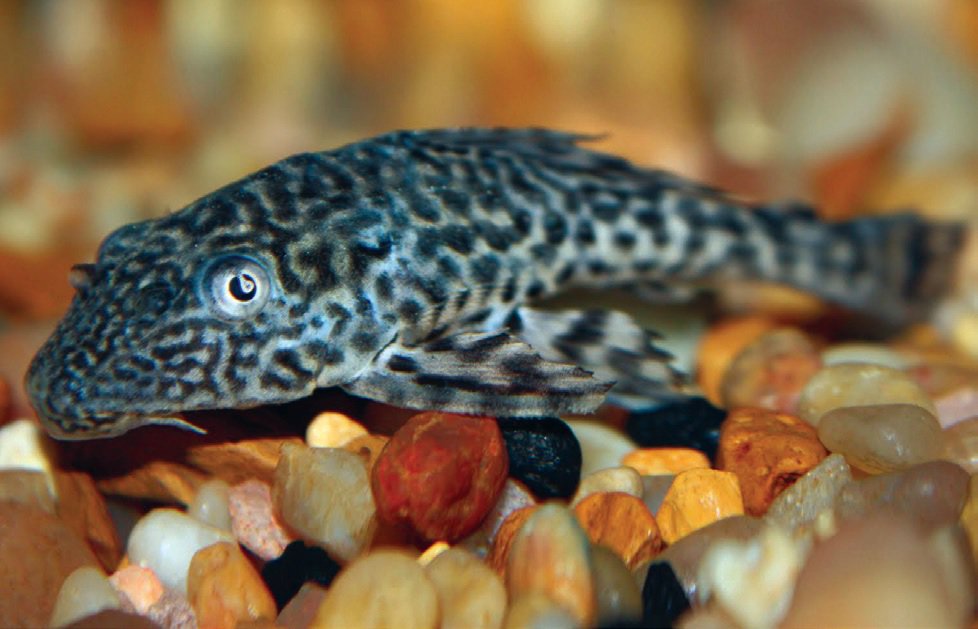Do Plecos Bury Themselves
Do Plecos Bury Themselves? Unveiling the Truth
Pain Points Related to Do Plecos Bury Themselves
If you are a fish enthusiast, you might have several questions about a wide range of fish species. One such question could be, do plecos bury themselves? Many beginners or experts keep questioning whether this interesting fish species bury themselves. It is essential to know the truth behind it and the factors affecting this behavior to ensure adequate care of the plecos.
Answer to Target Question
Do plecos bury themselves? Well, the answer is both yes and no. Plecos are known to hide in narrow, dark spaces or shrouded areas, which could often be sand or other materials in an aquarium. However, it is mostly not a burying behavior but rather a hiding mechanism to stay safe and protected.
Summary of Main Points
In summary, Plecos indeed do not bury themselves, but instead, they tend to hide within close and dark areas to remain protected. Their activity level and behavior are affected by several factors, including the habitat, environment, and water parameters in the aquarium.
Do Plecos Bury Themselves: Target, Personal Experience, and Explanation
As a fish caretaker and lover, I have been curious about the different species of fish and their behavior. My experience with Plecos has been awe-inspiring, and I have observed that Plecos hide in dark areas, but it is not a burying behavior. They tend to burrow beneath decorations in the aquarium, including driftwood, rocks or even the substrate to find a comfortable place to rest. Therefore, as long as they are in a comfortable area, they will be content and safe.
Plecos are known to be territorial and, therefore, will jostle for spaces in tight surroundings such as rock caves and crevices. Their behavior is often linked to a sense of seclusion and safety. It is essential to provide them with the right environment to feel safe and at ease.
Factors Affecting Plecos' Behavior
Plecos tend to hide in dark and isolated spaces, but the frequency of such behavior is influenced by various factors. Such factors include the decor of the aquarium, the size of the aquarium, the number of plecos in the aquarium, and their age. Lack of adequate space could lead to aggressive behaviors, fighting, or stress. For optimal health and wellness, aquatic experts recommend having at least a 75-gallon aquarium tank for full-grown plecos.
Water Parameters in the Aquarium
The water parameters in the aquarium can also affect the behavior of Plecos. Experts recommend keeping the aquarium temperature between 72°F and 86°F with a pH range of 6.5 to 7.5. Maintaining these parameters will ensure that plecos remain healthy and active.
Providing a Comfortable Environment for Plecos
Therefore, the best way to ensure that Plecos do not bury themselves is to provide them with a comfortable environment that replicates their natural habitat. This includes providing the right decor, adequate space, and maintaining the right water parameters in the aquarium.
Personal Experience with Plecos: How to Ensure Their Safety
I have learned that it is essential to provide plecos with a comfortable and safe environment for their optimal health and wellness. To ensure that the fish species remain healthy and happy, I provide them with ample space, plant cover, and adequate lighting. It is also essential to monitor their social interaction with other fish species, which ensures that the plecos remain stress-free and content.
Question and Answer Section: Do Plecos Bury Themselves?
Question 1: What is the most common reason behind Plecos hiding in the aquarium?
A: Plecos are known to be territorial and, therefore, hide in dark areas to protect themselves when they feel threatened.
Question 2: Can hiding lead to stress or illness in plecos?
A: Yes, lack of adequate hiding space, and consistent stress could lead to stunted growth or other diseases in plecos.
Question 3: How do you ensure optimal health and wellness for Plecos in an aquarium?
A: Providing the right environment, adequate space, proper water temperature and quality, and closely monitoring their behavior around other fish species could ensure optimal health and wellness for Plecos.
Question 4: How frequently do Plecos hide in the aquarium?
A: Plecos do not necessarily hide frequently; they tend to be active and come out in the open once they feel safe and protected.
Conclusion of Do Plecos Bury Themselves
Plecos are unique fish species that are known for their hiding behavior in the aquarium. It is important to understand that they do not technically bury themselves, but instead, they prefer to hide in snug areas to remain protected. Factors such as aquarium decor, adequate space, and water parameters significantly affect their behavior. To ensure optimal health and wellness for Plecos, it is crucial to provide them with a comfortable environment that replicates their natural habitat, ample space for hiding, and territorial tendencies.
Gallery
Plecostomus / Pleco Fish Care | Facts, Food & More | Petco

Photo Credit by: bing.com / plecostomus petco fish pleco facts pet scavengers care food eat adult inches
What Do Plecos Eat? (Diet & 1 Commonly Forgotten Thing You NEED To

Photo Credit by: bing.com / eat plecos pleco dreamstime commonly forgotten diet provide thing need bristlenose golden
Do Plecos Bury Themselves? Expert's Answer | Keeping Catfish

Photo Credit by: bing.com /
Handling Your Plecos - General Pleco Talk - CanadaPleco Forums
Photo Credit by: bing.com / plecostomus fish pleco plecos big tropical catfish largest google armored aquarium search post freshwater peixes wow ever handling scales fishing
What Do Plecos Eat? (Diet & 1 Commonly Forgotten Thing You NEED To

Photo Credit by: bing.com / plecos pleco commonly zebra